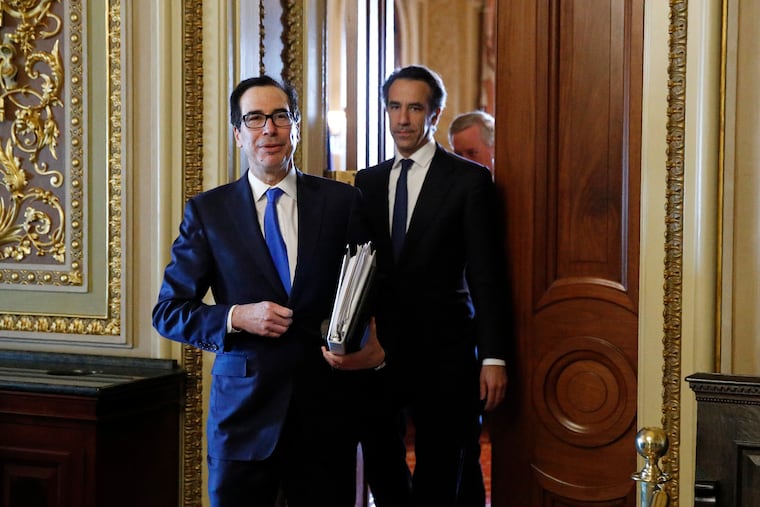Coronavirus relief bill does a lot of good, but it’s just a start | Editorial
The relief bill earmarks $150 billion for state and local governments. This may be some of the most critical money in the long term — and most states will find that money falls far short of what will be needed.

Even amid the worst public health crisis in current history, some members of Congress are confronting an even bigger fear: that people will become overly reliant on the government.
The coronavirus relief bill approved by the Senate was nearly derailed because of four Republican senators’ concerns that a provision that not only extends the time people can receive unemployment compensation but adds a temporary supplement of an additional $600 a week for four months would trigger the dreaded dependency on government and cause people to quit their jobs to make more money collecting unemployment than working.
Fortunately, the bill that passed the Senate and is on its way to approval in the House and by President Donald Trump has a lot of good in it that will ease some of the economic devastation wrought by this crisis.
It is a massive bill calling for $2.2 trillion of aid and relief to a wide swath of society. It provides for small business loans, relief from some foreclosures and evictions, community development block grants, housing assistance, economic development, aid to health-care institutions on the frontline of the crisis, and grants to support local school systems. It provides billions in aid to transit systems and airports. In addition, it provides corporate relief, including $58 billion for the airline industry and over $400 billion for loans to other industries.
Individual aid will come in the form of checks of $1,200 for Americans with incomes up to $75,000 ($150,000 for couples). This, in addition to the expansion of unemployment benefits, will provide critical relief, especially for those whose jobs have disappeared overnight.
Finally, the bill earmarks $150 billion for state and local governments. In many ways, this may be some of the most critical money in the long term — and most states will find that money falls far short of what will be needed. In Pennsylvania and in other states, this money will be critical for the state to shore up its systems and resources to actually make sure all these dollars get out to people quickly.
For example, the unemployment figures have spiked dramatically — 3.3 million Americans filed for unemployment last week alone — and will continue to swell. That will put extraordinary demands on an unemployment system that, in Pennsylvania, struggles to provide timely human response even in the best of times. This will become critical, especially for those who can’t access technology.
The digital divide is about to get even more critical. That divide could also present problems for those Americans who are not banked. Delays for those who have not already established direct deposit with the IRS could see delays in getting printed checks; the unbanked — low-income people who aren’t part of established financial systems — will also confront barriers to getting relief.
States’ and cities’ ability to handle the current crisis is being taxed. In light of the plummeting revenues and unprecedented demands on its systems, budgets, and workforces, the aftermath of this crisis, when the huge backlog of needs emerge, will strain local and state governments even more. And that’s likely to last for years to come.